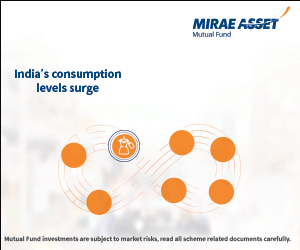The Investors Fix: Debt Funds Versus Fixed Deposits

It is very hard to let go off the fixed deposits, especially when the interest rates are as high as 9.5%, close to a double digit. An investor might think it is even foolish to consider Debt funds in such a scenario because neither does it have the promise of fixed return nor is its return as high as that of fixed deposits. Fixed deposit in such a scenario might sound like every investor’s paradise. This misunderstanding usually occurs because investors lack a nuanced understanding of both debt funds and mutual funds.
Debt funds are a type of mutual fund that generates returns by investing in bonds or deposits of various kinds. The corpus created by pooling in investments is lent by the Asset Management Company to various bonds like the Bonds issued by Government of India. These bonds are not accessible by the public but only to organizations. Through Debt Funds individuals can invest in these bonds. Fixed Deposit works on a similar principle of borrowing and lending. The money deposited by an individual is seen as a form of lending by the customer to the bank. There is a fundamental difference in these two types of lending. The returns on Fixed Deposits remain fixed whereas returns of Debt Funds vary because the bonds they invest in are tradable. The prices of the bond rise and fall and because of this the returns vary as well.
The price of a certain bond, if rises after the Debt fund has invested in the bond, the value of the investment rises. The investors earn profits because of the rise of the value of the bond along with interest income that is generated by an investment in a bond. At the risk of presenting a rosy picture, it is necessary for the investors to understand that it is equally possible for bonds to suffer losses when the price of the bonds invested in falls. Profit and losses are two sides of the same coin. Historically speaking, debt fund’s performances have always been inclined towards profits and returns have often leered into double digits. They have been known to outperform the returns provided by Fixed Deposits.
One of the aspects that investors often do not take into consideration is taxation on the returns of fixed deposit. The returns are taxable as per an individual’s income tax slab which lowers the return. If the expected return is 9%, the investors who fall in the 30% income tax slab will get a real return of 6.30%. The returns, whether they are given on a cumulative basis or annual basis, the tax has to be paid annually even though the withdrawal might be after five years. TDS is applicable for those investors who are getting a return of 10,000 INR or more. The returns that are lucrative pre-tax fail to remain lucrative post tax. The real returns in fixed deposit are calculated after deducting the taxes.
Debt Funds emerge victorious both on accounts of taxes and inflation. In Debt Funds the long term capital gains tax i.e. tax on returns held for at least three years, is 20% with indexation benefit. Short term capital gains tax is deducted according to the income tax slab. In indexation the cost of investment is raised to account for inflation. The cost inflation index is released by government authorities every year. It is due to this factor of indexation benefit that debt funds are able to generate higher returns than fixed deposits. Taxation in fixed deposits full earning is taxed. In long term capital gains for debt funds only the gain is charged.
Fixed deposits, while providing the cloak of security still allows inflation to seep and erode your savings. The tax slab often being as high as 33% the promised rate of return is hardly ever delivered. Fixed deposit can be a good option for individuals in the lower income tax bracket who fall under the tax slab of 10% - 20%. In this income slab out of the promised retunes of approximately 9%, post tax returns of 7%-8% can be generated. Fixed deposits still do not enjoy the indexation benefits and the returns suffer due to rising inflation. Investors who fall in the higher income slab and want to save their savings from the brunt of inflation should consider Debt funds as an avenue of investment. They enjoy tax benefit as long term capital gains with indexation benefits. This will ensure their money is working as hard as they are to generate the returns the savings and earnings they deserve.
Queries
-
What is the benefit of mutual fund STP
Aug 29, 2019
-
How much to invest to meet target amount of Rs 2 Crores
Aug 26, 2019
-
Can I achieve my financial goals with my current mutual fund investments
Aug 24, 2019
-
Can you tell me return of various indices
Aug 19, 2019
-
What would be the post tax return on different investments
Aug 18, 2019
-
Which Principal Mutual Fund scheme will be suitable for my retirement corpus
Aug 16, 2019
-
What is the minimum holding period for availing NCD interest
Aug 4, 2019
Top Performing Mutual Funds
Recommended Reading
Fund News
-
Axis Mutual Fund joins ONDC Network to Expand Access to Mutual Fund Investments
Apr 18, 2025 by Axis Mutual Fund
-
Nippon India Mutual Fund launches Nippon India Nifty 500 Quality 50 Index Fund
Apr 18, 2025 by Advisorkhoj Team
-
Nippon India Mutual Fund launches Nippon India Nifty 500 Low Volatility 50 Index Fund
Apr 18, 2025 by Advisorkhoj Team
-
RBI Monetary Policy: RBI changes policy stance and lowers rate
Apr 9, 2025 by Axis Mutual Fund
-
Kotak Mahindra Mutual Fund launches Kotak Nifty Top 10 Equal Weight Index Fund
Apr 7, 2025 by Advisorkhoj Team













